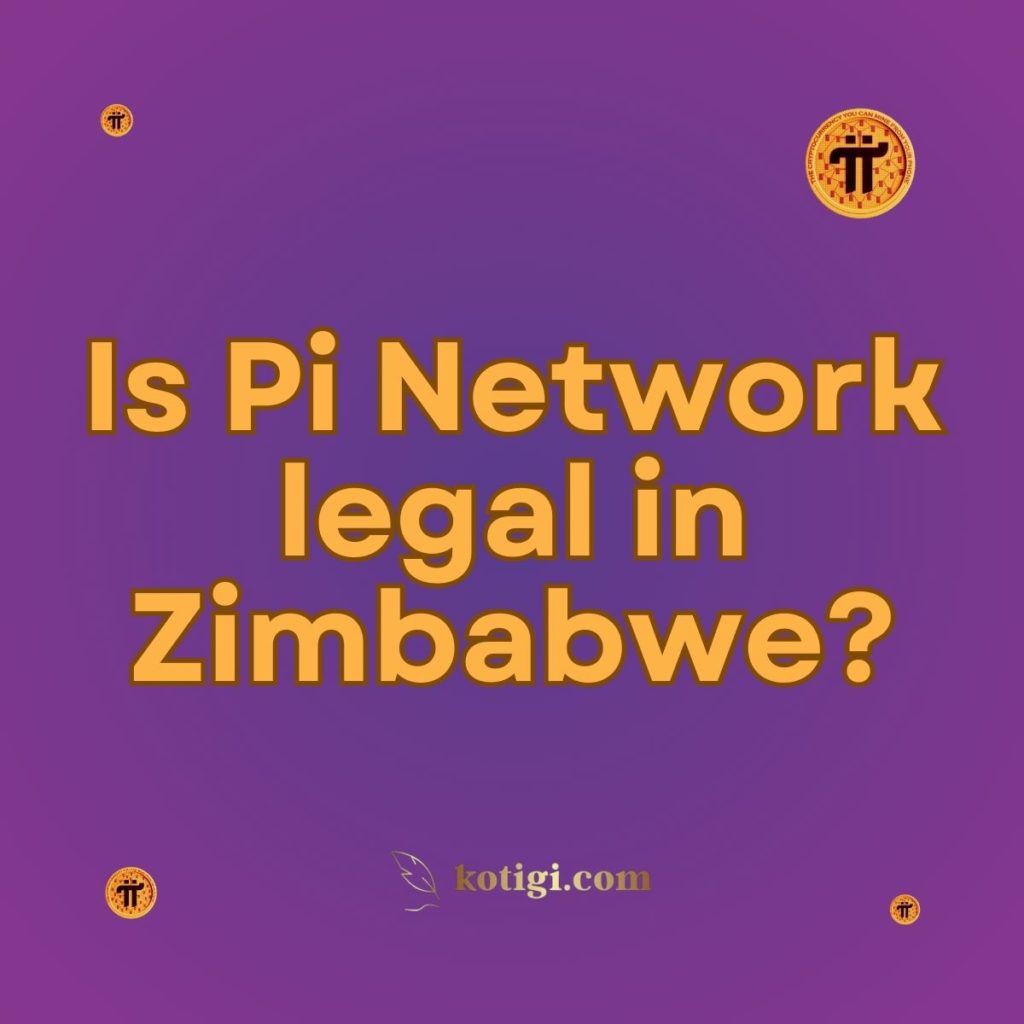
Is Pi Network legal in Zimbabwe?
Yes, Pi Network is currently legal in Zimbabwe, but the regulatory environment for cryptocurrencies in the country is still unclear and developing. Zimbabwe does not have specific laws that directly regulate Pi Network or similar projects, and the legal status of cryptocurrencies is influenced by the policies of the Reserve Bank of Zimbabwe (RBZ) and other financial regulators. Here is an overview of Pi Network’s regulatory situation in Zimbabwe:
1. Regulatory Status in Zimbabwe
Zimbabwe does not have specific legislation that governs the use of Pi Network or other cryptocurrencies. However, cryptocurrencies are not recognized as legal tender in Zimbabwe. The Reserve Bank of Zimbabwe (RBZ) has historically taken a cautious approach toward digital currencies. In 2018, the RBZ banned financial institutions from processing cryptocurrency transactions, effectively prohibiting the use of cryptocurrencies in formal financial systems.
Despite this, individuals in Zimbabwe can still own and trade cryptocurrencies like Pi Network informally, as there is no outright ban on holding or transacting with digital assets on a peer-to-peer basis. However, due to the lack of clear regulatory frameworks, there is some ambiguity surrounding their legal status.
2. Oversight by the Reserve Bank of Zimbabwe (RBZ)
The RBZ oversees Zimbabwe’s financial system and has expressed concerns about the risks associated with cryptocurrencies, such as money laundering, fraud, and financial instability. If Pi Network evolves to include financial transactions or if its tokens become tradable, it could potentially come under scrutiny by the RBZ.
While there are no specific guidelines for Pi Network, any development involving financial transactions or trading of Pi tokens would require careful consideration of existing financial regulations and potential compliance with future regulatory requirements by the RBZ.
3. Potential Regulatory Changes and Developments
Zimbabwean authorities have shown interest in exploring the potential of digital currencies and blockchain technology. The government has considered creating a regulatory sandbox for fintech and blockchain projects to understand the technology better and develop appropriate regulations. If such initiatives are implemented, they could provide a clearer legal pathway for projects like Pi Network to operate in Zimbabwe.
Future regulations could provide more explicit guidelines on the use, taxation, and regulation of digital assets. This may impact the legal standing of Pi Network in Zimbabwe, especially if its development involves features that interact with the broader financial system.
4. Consumer Protection and Public Awareness
Given the current ambiguity in the regulatory framework, consumer protection is a significant concern in Zimbabwe’s crypto space. Users of Pi Network should be cautious and well-informed about the potential risks, given the lack of regulatory clarity and the possibility of scams or fraudulent activities in the unregulated cryptocurrency market.
It is crucial for Pi Network to provide clear information to its users in Zimbabwe about the risks associated with using its platform and any future regulatory developments that could affect their participation.
Conclusion
Pi Network is currently legal in Zimbabwe, but the lack of clear regulations creates uncertainty about its long-term status. While Zimbabwean citizens can participate in Pi Network informally, the network must be aware of the evolving regulatory environment and ensure compliance with any future regulations. As the legal landscape for cryptocurrencies in Zimbabwe continues to develop, users should stay informed and exercise caution to minimize potential risks.




